
China has started a new comprehensive scientific expedition on Mount Qomolangma, the world's highest peak on the China-Nepal border.
The expedition is part of China's second scientific research survey on the Qinghai-Tibet Plateau, which started in 2017.
More than 270 scientific research members from 16 squads are participating in the expedition, according to the second Qinghai-Tibet Plateau comprehensive scientific research team on Thursday.
With the most disciplines covered, the most scientific research participants, and the most advanced equipment utilized, the expedition is the largest since China's second scientific research survey on the Qinghai-Tibet Plateau began.
The expedition focuses on major scientific issues such as westerly wind-monsoon synergy, Asian water-tower change, ecosystems and biodiversity, and human activities in the Mount Qomolangma area.
A total of eight weather stations will be set up during the expedition, four of which are planned to be over 7,000 meters above sea level. The highest weather station, at an altitude of 8,800 meters, will be the highest automatic weather station in the world if it is established successfully.
The expedition team will also conduct studies on environmental changes, changes in greenhouse gas concentration, ecosystem carbon sink functions, and human adaptation to extreme environments in extremely high altitude areas of the Mount Qomolangma against the backdrop of global warming, according to the research team.
The expedition is expected to provide scientific data about the changes in the atmospheric environment and cryosphere in the Qomolangma area, and reveal the laws of environmental change in Qomolangma's extremely high-altitude areas in the context of climate warming.
Launched in 2017, the second scientific expedition to the Qinghai-Tibet Plateau is of great significance to advancing the sustainable development of the region and promoting global environment protection. (Xinhua)
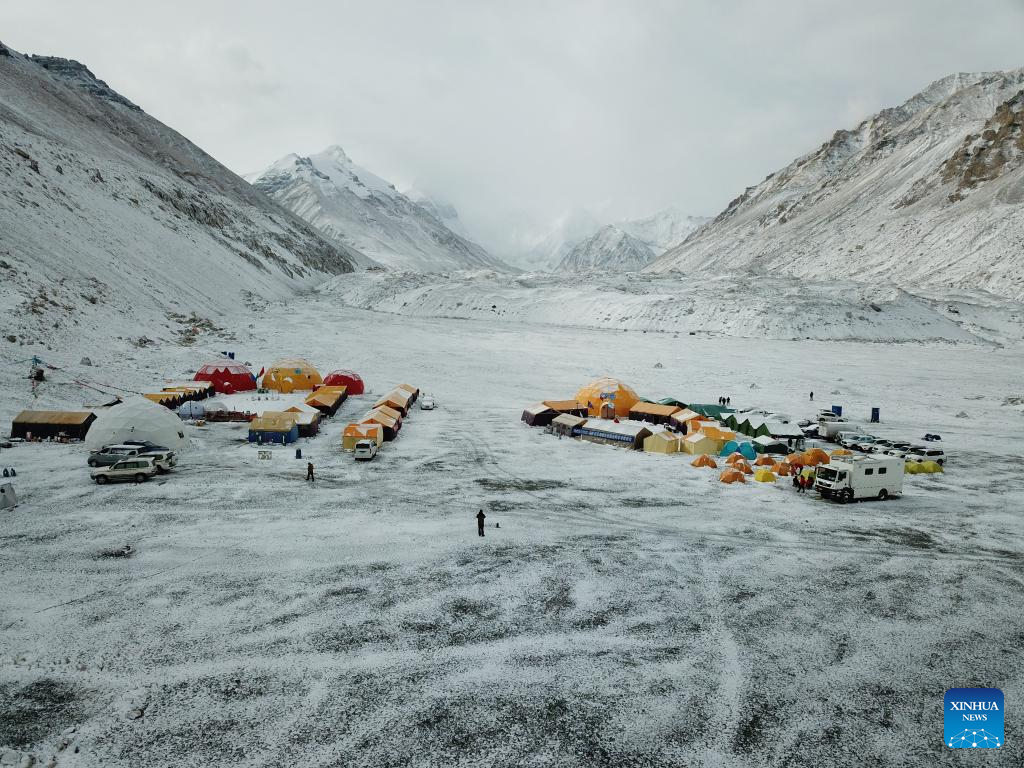
Aerial photo taken on April 30, 2022 shows a view of the Mount Qomolangma base camp. China has started a new comprehensive scientific expedition on Mount Qomolangma, the world's highest peak on the China-Nepal border. The expedition is part of China's second scientific research survey on the Qinghai-Tibet Plateau, which started in 2017. More than 270 scientific research members from 16 squads are participating in the expedition, according to the second Qinghai-Tibet Plateau comprehensive scientific research team on Thursday. (Xinhua/Jiang Fan)
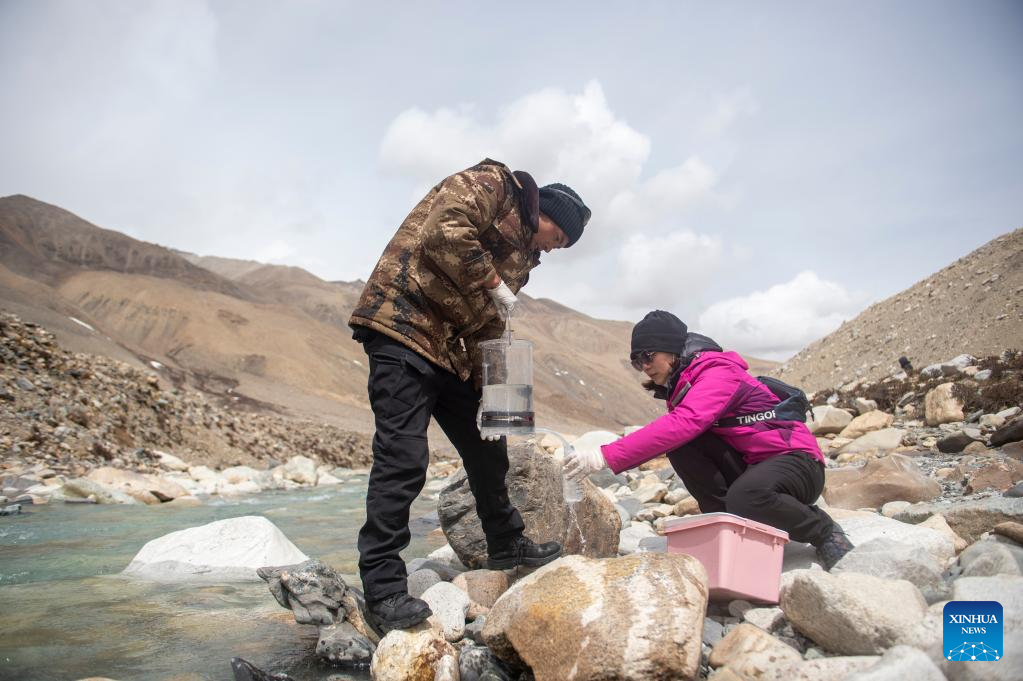
Scientific research members collect water sample at the East Rongbuk glacier near Mount Qomolangma on April 30, 2022. (Xinhua/Dainzin Nyima Choktrul)

Scientific research members set up a wind lidar at the Mount Qomolangma base camp on April 30, 2022. (Xinhua/Sun Fei)
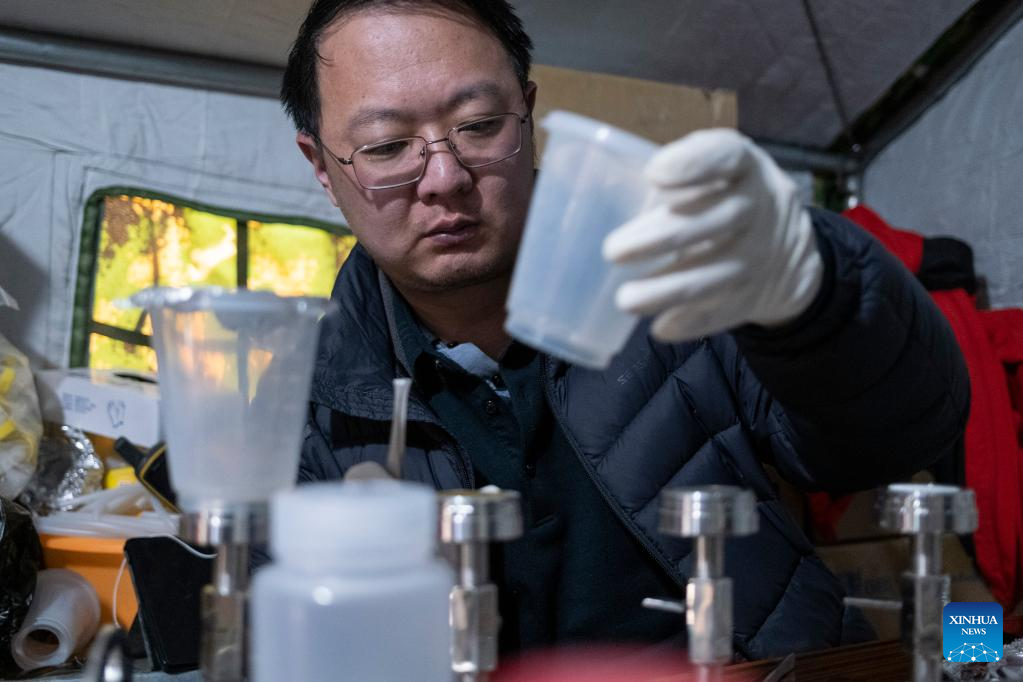
A scientific research member extracts microorganism from glacial meltwater at the Mount Qomolangma base camp on April 30, 2022. (Xinhua/Sun Fei)
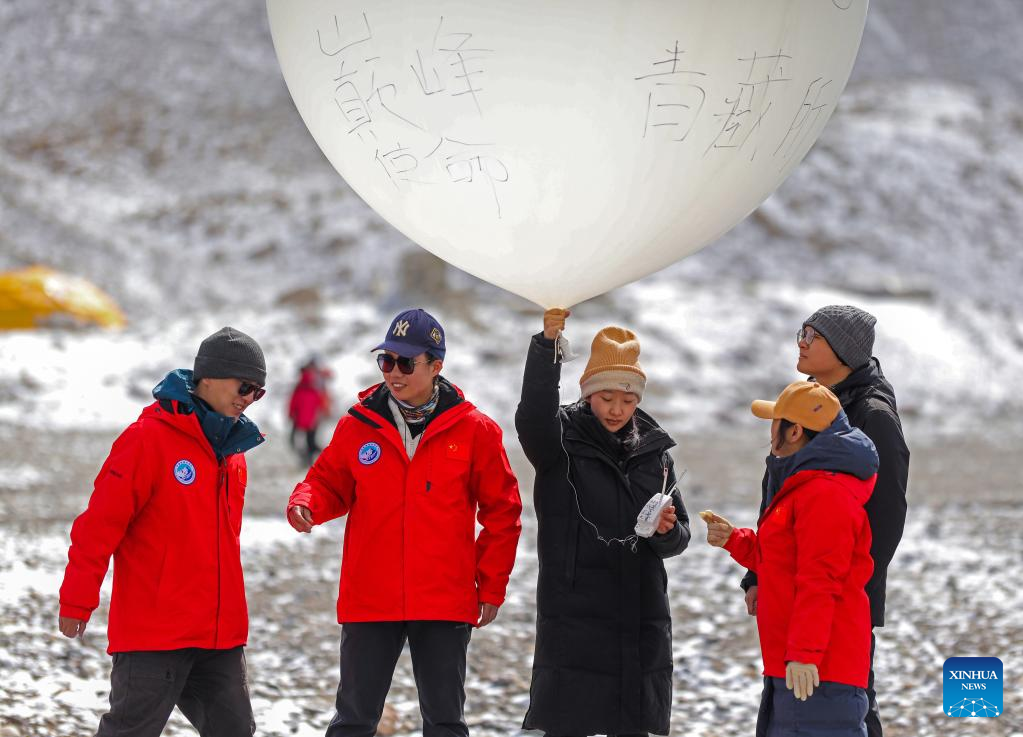
Scientific research members prepare to launch a balloon carrying radiosonde at the Mount Qomolangma base camp on April 30, 2022. (Xinhua/Jiang Fan)

Scientific research members extract microorganism from glacial meltwater at the Mount Qomolangma base camp on April 30, 2022. (Xinhua/Sun Fei)
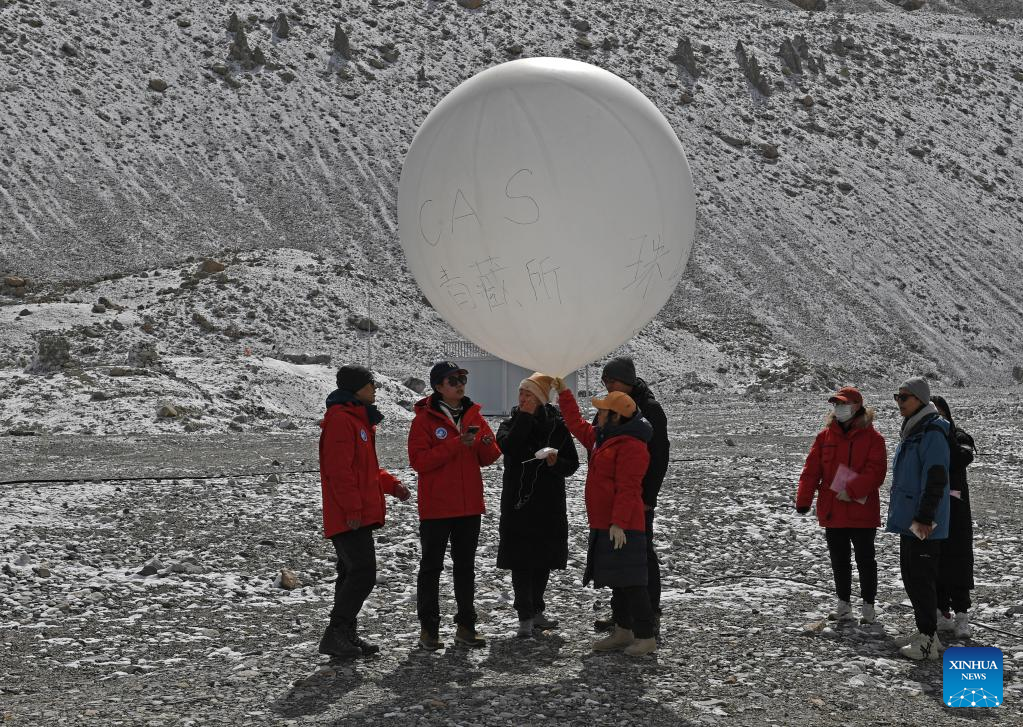
Scientific research members prepare to launch a balloon carrying radiosonde at the Mount Qomolangma base camp on April 30, 2022. (Xinhua/Jiang Fan)
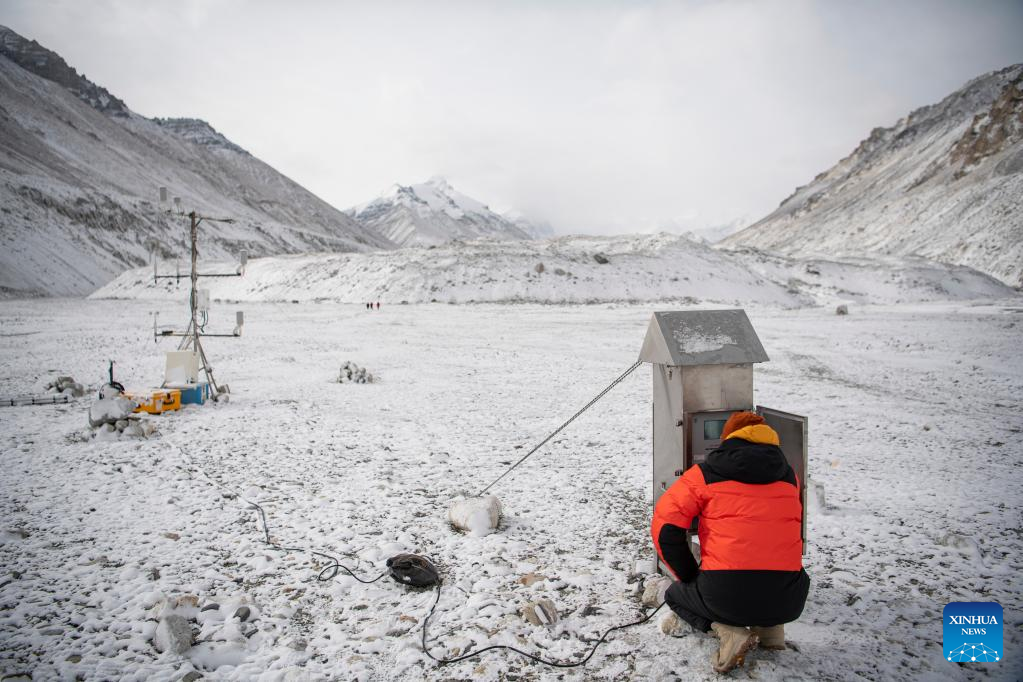
A scientific research member collects microorganism from the air at the Mount Qomolangma base camp on April 30, 2022. (Xinhua/Sun Fei)
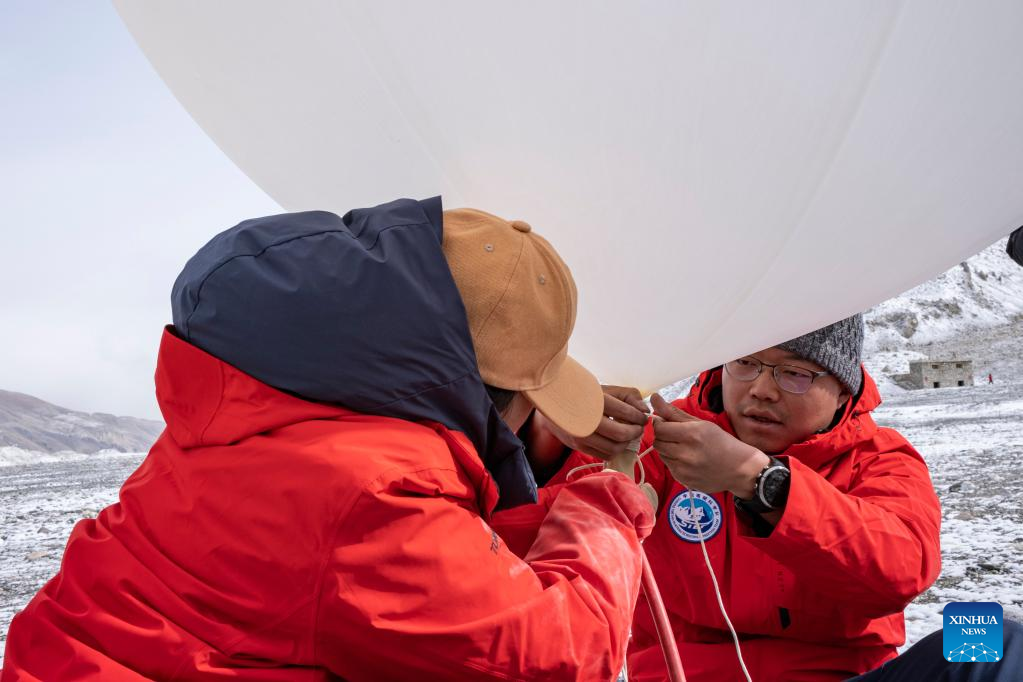
Scientific research members prepare a balloon carrying radiosonde for release at the Mount Qomolangma base camp on April 30, 2022. (Xinhua/Sun Fei)
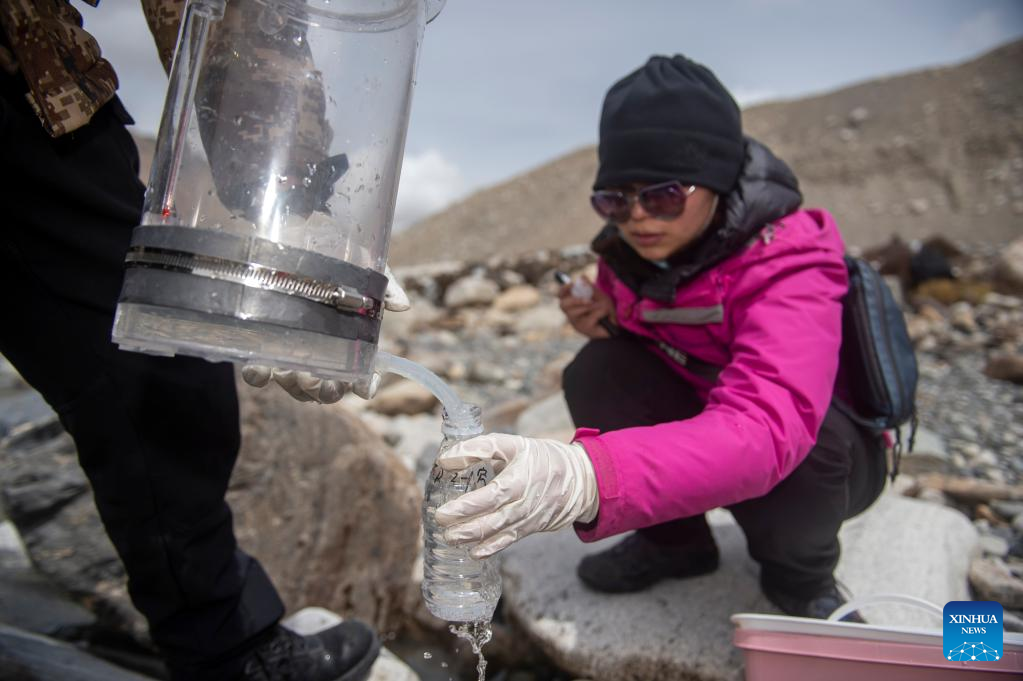
A scientific research member collects water sample at the East Rongbuk glacier near Mount Qomolangma on April 30, 2022. (Xinhua/Dainzin Nyima Choktrul)
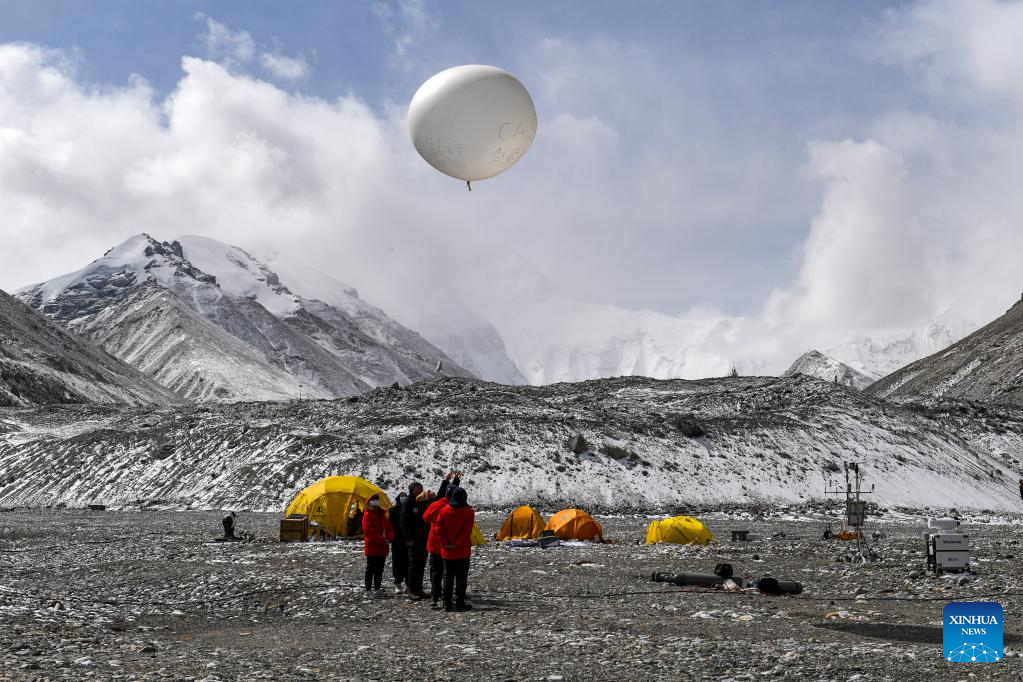
Scientific research members launch a balloon carrying radiosonde at the Mount Qomolangma base camp on April 30, 2022. (Xinhua/Jiang Fan)
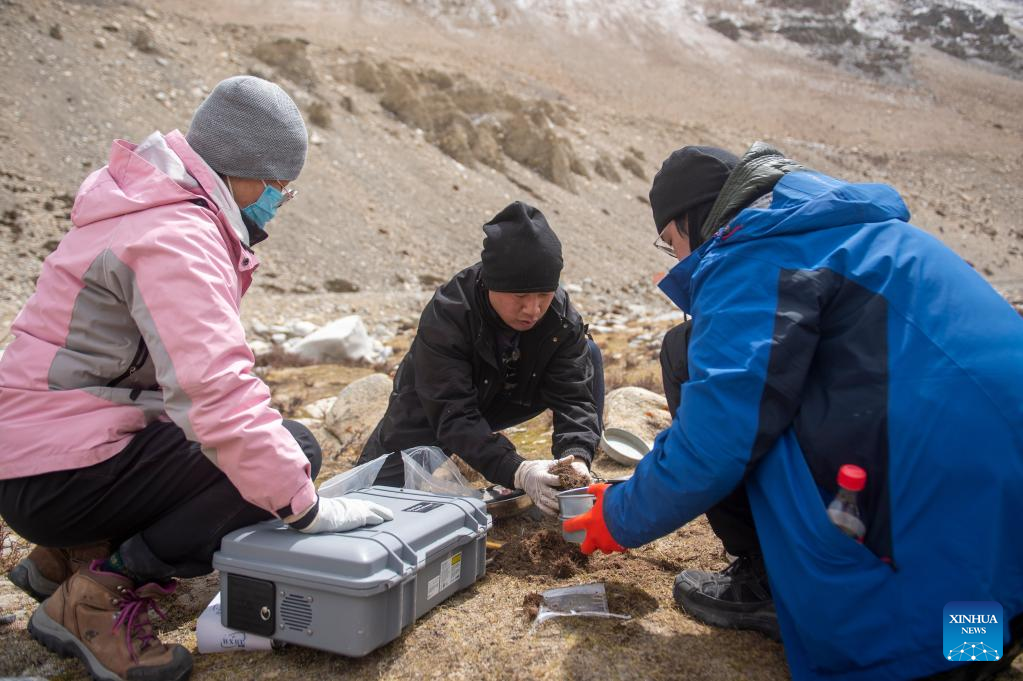
Scientific research members collect soil sample near Mount Qomolangma on April 30, 2022. (Xinhua/Dainzin Nyima Choktrul)

86-10-68597521 (day)
86-10-68597289 (night)

52 Sanlihe Rd., Xicheng District,
Beijing, China (100864)

